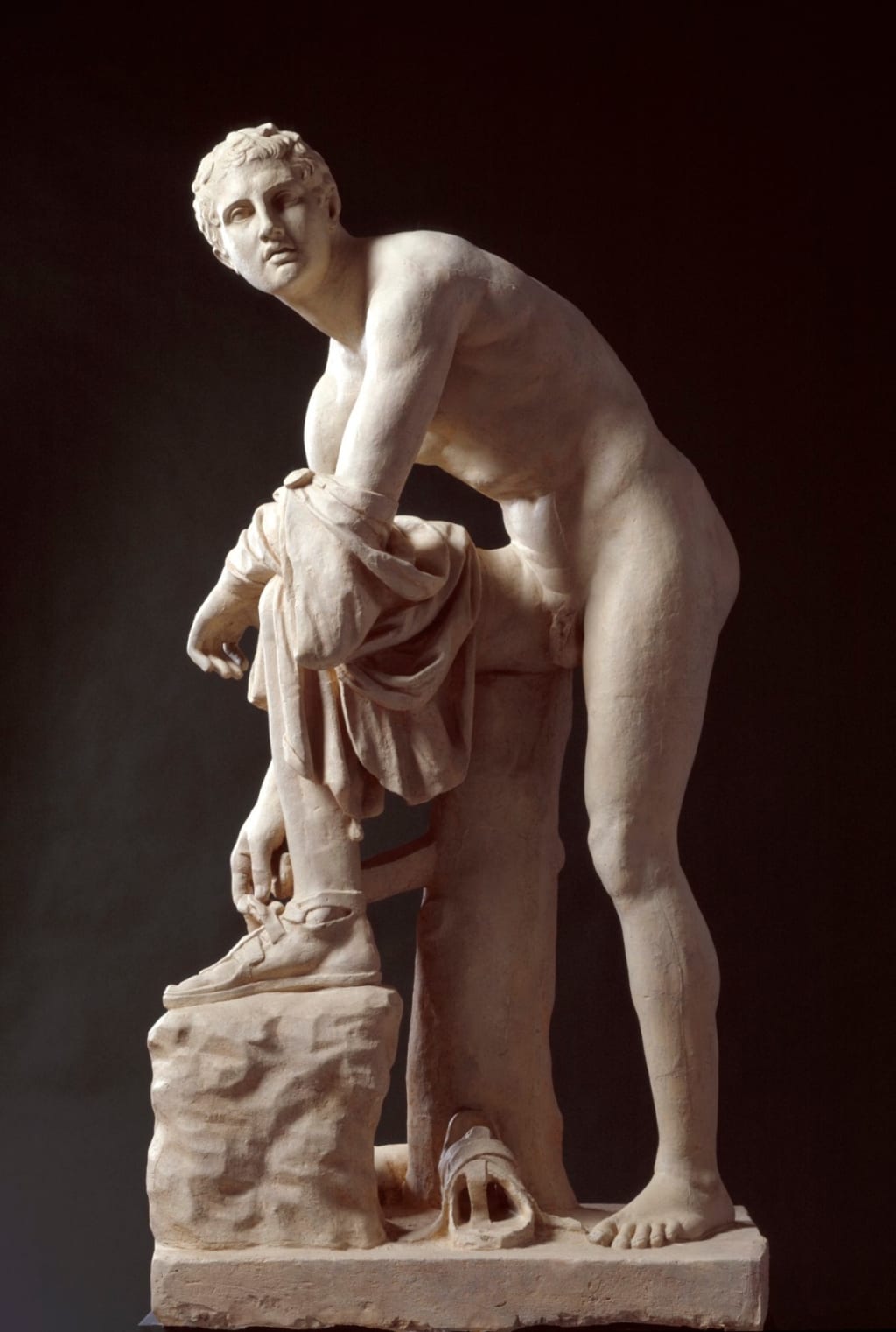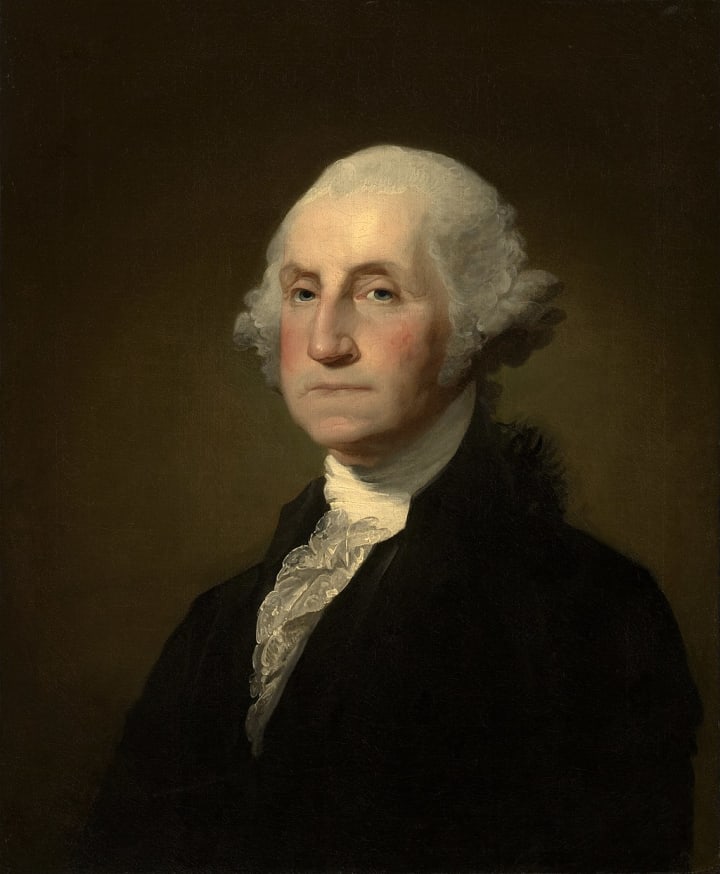
"It is better to be alone than in bad company."...The American Cincinnatus
The year was 1732 and a young boy of eleven years was about to be the center of a life-changing event that would mark the beginning of service to his community and to his nation. His father had just died and as one of two surviving male heirs, he was bequeathed 5,000 acres to continue farming tobacco in Northern Virginia. Less than twenty years later, he would be given a commission in the Virginia Militia and would serve with distinction.
During this service, he earned a nickname that would follow him for the remainder of his natural life. The Iroquois Indians would forever call him Conotocaurius, the Destroyer of Villages, the same nickname his great-grandfather had earned upon his arrival to the colonies almost 100 years earlier. He would be tasked with many duties and before his detachment was absorbed by the British Army and he was promoted to the rank of Brevet Brigadier General in command of a full British brigade, he would earn a reputation for being firm and fair. But in 1763, he was denied further promotion and prevented from becoming a full-fledged member of the British Royal Army solely because he had been born in the Colonies.
This intentional slight to his character by the King of England would forever change his perspective of who he was destined to become. He had never considered his birthright to be a detriment to who he was. If anything, he had always considered himself to be a proud Virginian. Henceforth, he would forever be known as The American Cincinnatus.
Cincinnatus
About 2200 years earlier, another farmer was tending his fields, just like his father and grandfather before him, when he was given a commission in a similar militia. This time it was for the Roman Army. Like the American version, he left his plow in the field, fought, and led his country to victory. Although he had near-absolute authority when asked if he would continue to lead until his death, he smiled and thanked his supporters and then returned to his plow.
He believed that a leader should only reign temporarily; political office should not be a career, and certainly not inherited. All citizens should serve the greater good, exercise civic virtue and responsibility, be humble, and at all times appear modest. When he left his leadership position, he took nothing with him, not even the broadsword, shield, or shoes he had been given to defeat the enemy. He took only what he arrived with, his cloak and his honor.
During his time of service, he refused to be paid. Likewise, he never accepted the many accolades bestowed upon him by the Roman Congress for defeating the many enemies of Rome and for uniting the Roman empire again. Cincinnatus believed that people should be willing to serve their country simply for the privilege of living in their country. There should be no pay or benefits of office and service should be temporary to prevent undue influence.
Father of our Country
By now, you have most likely determined that the American Cincinnatus is George Washington. During his lifetime, he earned many different nicknames, but the one he was most proud of was Father of our Country. Yes, there were other founding fathers and most certainly, there were thousands of citizens that threw down their plows and served our fledgling country when needed most. George Washington, however, espoused the virtues of what made citizens Americans.
Many soldiers and statesmen of the time displayed untethered pride and ambition when repelling the British from their intent to reign over the colonies as nothing more than territorial penal colonies. Washington rejected this pride. Instead, like a doting father, he endeared himself to his fellow citizens and to the world with his display of humility and grace.

He further demanded liberty, justice, freedom, and individual dignity that are still considered the hallmarks of our great nation. These traits superseded the practice of slavery and although Washington initially had reservations about requiring persons of color to serve in his armies, when he was overwhelmed with requests by former and current slaves to allow them to defend their country, he couldn't refuse them either. By the end of the Revolutionary War, people of color made up over 10% of the army and they were all volunteers.
Like Cincinnatus, Washington was also approached at the end of the war with the suggestion that he become King or Ruler of America for life. He rejected anything that alluded to a sense of royalty. It took much persuasion and convincing for him to consider becoming the first president. Finally, after having served two terms in office, he stepped aside and went home to his fields.
Why is this important now?
All across America in small towns everywhere, small communities go to the ballot every four years to elect someone they know and respect to lead and manage their towns and cities. These leaders are called Mayors and are normally elected by a majority popular vote. These officials serve one, maybe two terms then they return home. They go back to their normal lives doing what they did before they were elected. In many cases, they may continue to lead normal lives and function as a leader in conjunction with their day jobs.
The point is they aren't professional politicians. They don't make careers out of their decision to serve. This was the lesson the Father of our Country tried to teach us 245 years ago and we didn't pay attention. Now we have professional politicians in office who have gone to college to learn how to be politicians. They haven't excelled in life outside of the political realm.
Most are career-oriented with plans to stay in office thirty, forty, fifty years, or more. It's been said we have a political class as a result of this folly. Some will argue this is a natural evolution. Others will say it is not. The truth of the matter is both our nation and our world is much more sophisticated than it was 250 years ago. We do require professional managers and leaders to navigate a way forward. But this has come with a sad cost.
There are several things that haven't changed though. Humility, grace, honor, and trust are timeless. The lust for power and riches has eroded our demand for these character traits. In their place, we have politicians intent on acquiring as much as they can for themselves and those that voted them into power. Not the individual voters, but the political action committees and the corporations.
To protect themselves and further their agendas they hide behind catchphrases like "in the interest of national security" or "to prevent the permeation of extremism from spreading." The media has been enlisted to promote propaganda that supports the party in power further deluding reality, all the while continuing to support a systemic, almost cathartic approach to corrupt government. Many citizens are demanding a solution but it is easier said than done.
There really is not a viable solution to the many issues that face us today. The best anyone can hope for is to manage what we have and stay on the kicking bronc for as long as we can. People demand transparency and those in power promise transparency but they only show what they want you to see. I could continue but at this point, it is fruitless. It is hard to believe that in a short 245 years we have evolved to the point where we have so much, yet this bountiful has also cost us so much. I sometimes wonder would the American Cincinnatus approve.
About the Creator
Joey Lowe
Just an old disabled dude living in Northeast Texas. In my youth, I wanted to change the world. Now I just write about things. More about me is available at www.loweco.com including what I'm currently writing about or you can tweet me.






Comments
There are no comments for this story
Be the first to respond and start the conversation.